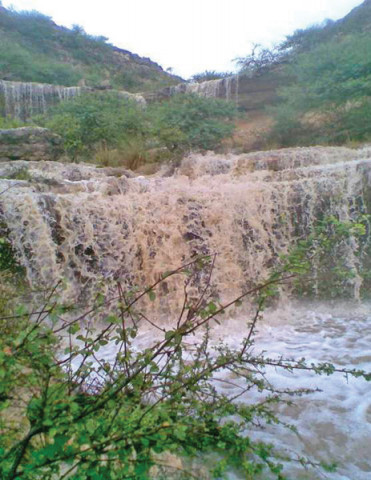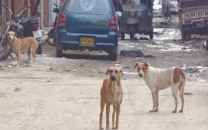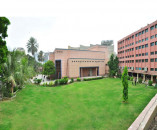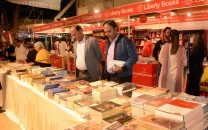What does 'belonging' to Karachi mean?
Speakers discuss the rights, responsibilities and identity that come with citizenship

What does 'belonging' to Karachi mean?
The residents of any city have rights, responsibilities and a sense of belonging - an identity, if you will - to that city. That, after all, is what citizenship is all about. Karachi's inhabitants are no different, even if some of its citizens are sometimes overlooked.
The sixth session of the Second Karachi International Conference, titled 'Citizenship and the Emerging Socio-Political Realities,' began with a few hiccups on Saturday: the previous session ran over and one of the speakers - architect and planner Christophe Polak, who was meant to discuss the city's 'intangible heritage' - was unable to attend. Luckily, though not much could be done about the delay, the conference organisers managed to secure Sindhi writer Gul Hassan Kalmati as its third speaker.
"Most people know what Karachi's basic problems are and what they are caused by," said urban planner Anwar, starting the session with his paper on 'Rural Karachi: Facing an Existential Threat?' "It's when we try to think of solutions that we flounder."
'Rural' is not something that comes to mind immediately when you think of Karachi - what in Pakistan could be more urban than this mega-city? It turns out, however, that agricultural land covers quite a bit of the northern side of the city - even if they are, as Anwar says, threatened by illegal land-grabbing and the ever-increasing urban sprawl. This sprawl, according to him, is a 'no-no' in modern planning paradigms that focus on compact, sustainable cities and food security. And if food security is important, then so are the lives of those who produce the food: the rural citizens, who seem to have few rights in Karachi.

"If we look at the older master-plans of the city, they envisioned a clear organic link between the urban settlements and the rural hinterlands," explained Anwar. "Now, there is no mention of rural Karachi. Its citizens have no voice, they are living like slaves entirely dependent on their MPAs."
He pointed out that throughout history, revolutions had always been triggered by land reforms: if the common man has land, he will be empowered. The plight of Karachi's rural hinterlands, in his opinion, could be addressed by the development of a formal agro-industrial zone - ideally with the involvement of the private sector to create employment, because "the government of Karachi is on its knees. The city government doesn't exist in a city of 20 million people!"
Mumbai-based social anthropologist Sarover Zaidi, meanwhile, moved the conversation along from rights to the question of identity as she talked about 'Tracing Karachi in Bombay'. Although her fieldwork was not supposed to examine the link between the two cities, fragments of Karachi and Pakistan kept cropping up in what she termed 'the Muslim cosmopolis within Bombay' until she could no longer ignore them. It was these fragments that she discussed, explaining that there was no other way to describe the chaotic coherence of the cities' connection.
"Yeh Karachi se mangwatey hain (we get these from Karachi)," a shopkeeper in this neighbourhood, traditionally the home of Bombay's Shias, Ismaili Khojas and Bohras, told her as he handed out a pack of Nauha CDs. Another shopkeeper waxed lyrical about Karachi solely on the basis of a map he had inherited from his father. In Muharram, residents of the area watched special screenings of majalis happening in Karachi.
"The evacuee properties of those who migrated to Karachi are spread across Bombay, tales of Ruttie Jinnah abound on the streets, and the resemblance between the 'roza' (mausoleum) of the Sayyedna in Bombay and the Mazar-e-Quaid in Karachi, built by the same architect, is impossible to miss," Zaidi went on.
"There is nostalgia for an impossible homeland in the Muslims of Bombay, a sort of exile that is not physical but lies within the heart," she explained. "It is the same for the Muhajirs of Karachi."
Closing the session, Kalmati touched upon what Karachi's citizens had done for the city, focusing upon the history of the Deepchand T Ojha Institute of Chest Diseases and the recognition of such institutions. "What happened to the Karachi that was built on the fervour of so many of its citizens?"
Published in The Express Tribune, November 23rd, 2014.



















COMMENTS
Comments are moderated and generally will be posted if they are on-topic and not abusive.
For more information, please see our Comments FAQ